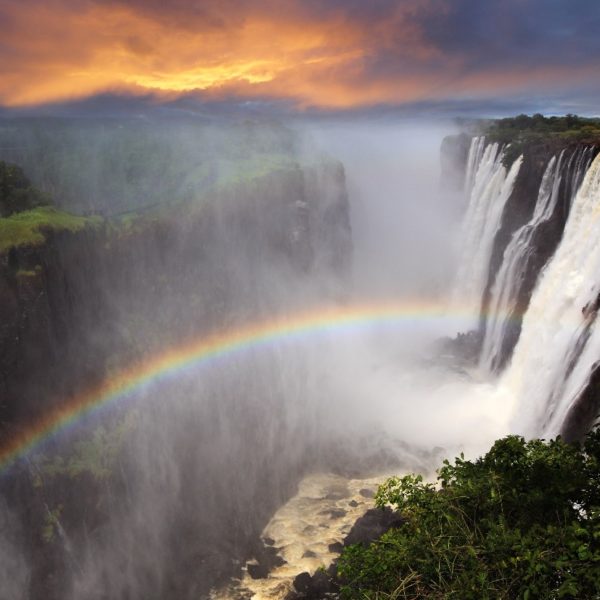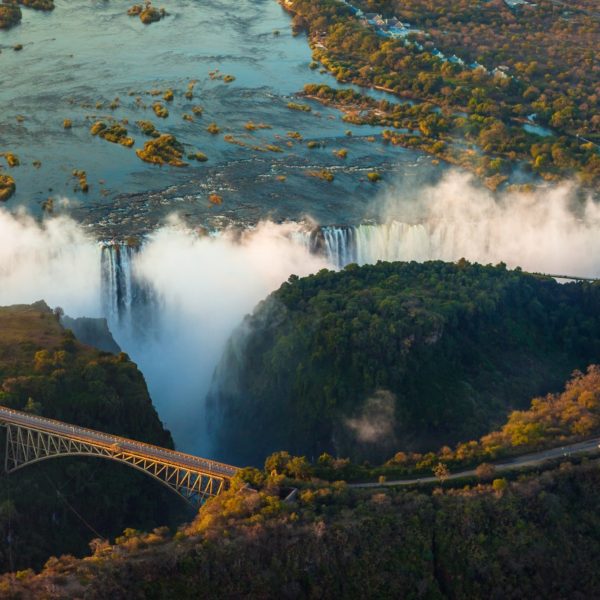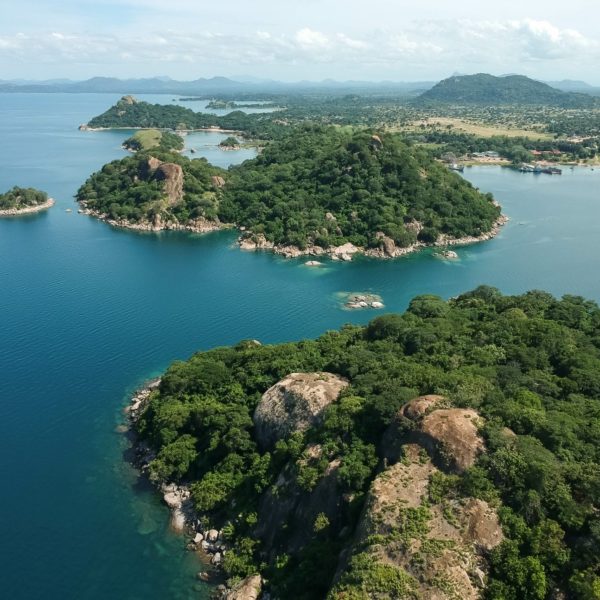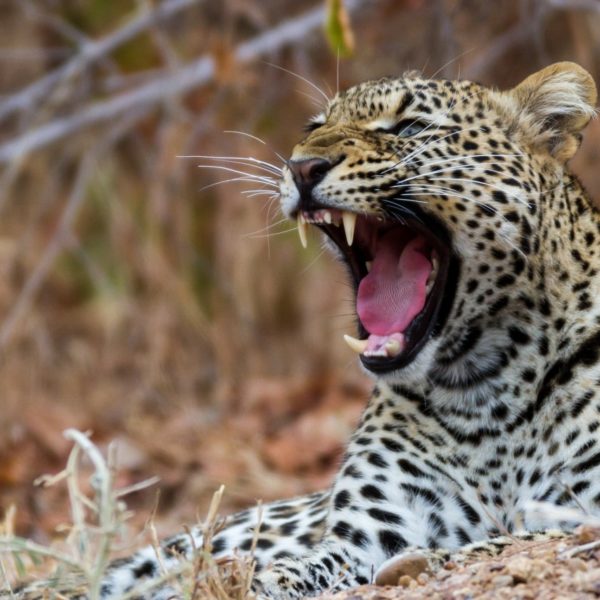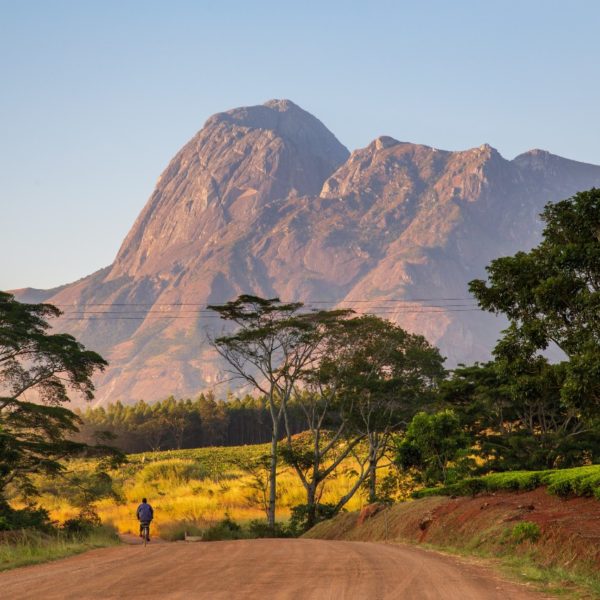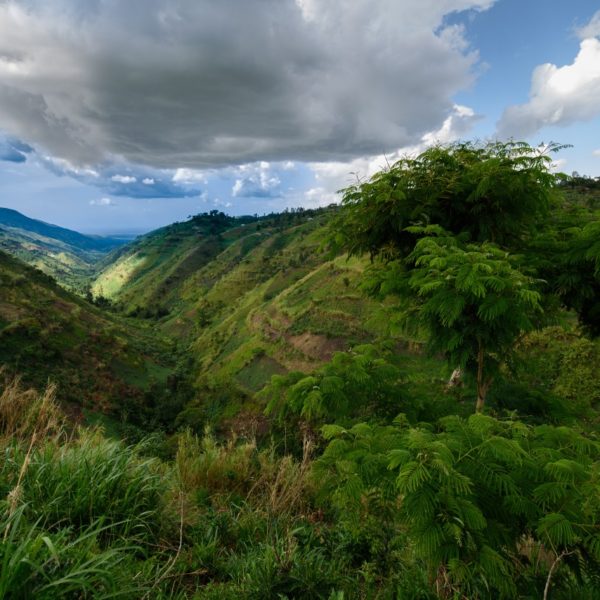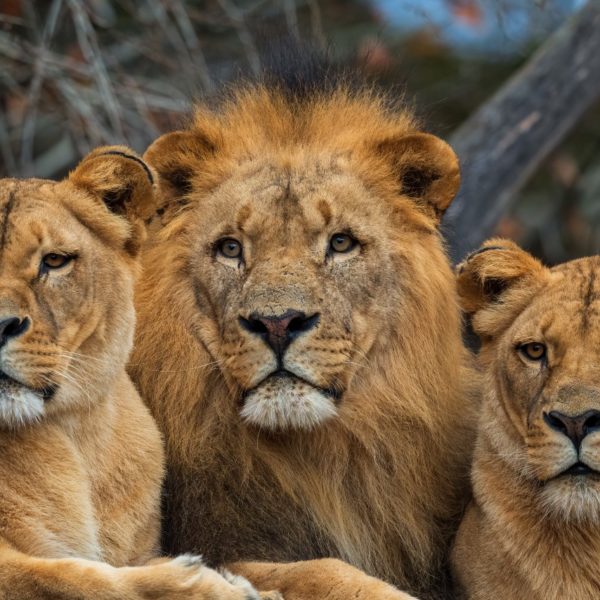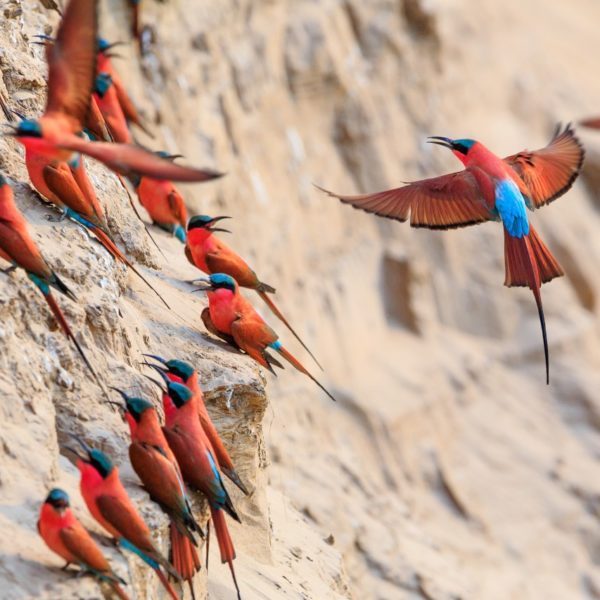Malawi, Zambia and the Democratic Republic of the Congo – 12/16 days
We would like to invite you to an extraordinary expedition to one of the most interesting regions of Africa which is the southern end of the Great Rift Valley.
During our expedition, we will see the Malawi Lake which has some exceptional geological, wildlife and cultural features. In Zambia, we will visit its scenic and biodiverse national parks and we will have an opportunity to admire the unique natural wonder which is the Victoria Waterfalls. For the travellers who will decide to extend the tour by the Katanga Province in the Democratic Republic of the Congo, it will be an exceptional opportunity to see the southern part of this magnificent country. We will visit the Kundelungu National Park (with famous Lofoi Falls) and Lubumbashi.
itinerary
Flights to the capital of Malawi usually arrive in the morning. After arrival, visa formalities, and then a short visit to the city. In Lilongwe, we will see the parliament building and the World War I Memorial. Then we will take a ride to Cape Maclear, one of the most scenic locations at the Malawi Lake. When we reach our destination, we will have some well-deserved leisure time and relaxation on the beach. We will stay for the night in one of the hotels in Cape Maclear.
L.D.
After breakfast, we will set out for a cruise on the Malawi Lake which is the southernmost of the African Great Lakes. It is the richest lake in the world by the number of fish species living there. For example, it is a habitat for over 700 species of only one family of Cichlidae. We will also visit islands on the lake where we will go to scenic viewpoints. We will also pass through fishing villages and we will observe fishermen at their daily work. We will sleep in Cape Maclear.
B. L. D.
After an early breakfast, we will head off for a several-hour journey to the South Luangwa National Park located in Zambia. After border crossing, we will stop for lunch. We plan to arrive at the place of our accommodation located within the National Park in the afternoon.
B.L.D.
A whole-day walking and driving safari in the South Luangwa National Park which is located where the Luangwa River wonderfully meanders, creating numerous lakes and marsh areas. There are many varied habitats within the National Park area – ranging from dry savannah patches to marshes and gallery forests near bodies of water. More than 400 species of birds and 60 species of mammals live in South Luangwa. One of the biggest attractions of the National Park is an endemic subspecies of the Rhodesian giraffe. Another is the largest population of free living leopards in Africa. The itinerary includes also a night safari in the park.
B.L.D.
After breakfast, we will start our whole-day trip to Livingston that is located near the Victoria Falls. En route we will stop for a meal and to have some rest as well as at scenic viewpoints. A short visit around the town is planned, depending on the time of our arrival. Dinner and night rest at the hotel.
B.L.D.
After breakfast, we will start our whole-day trip to Livingston that is located near the Victoria Falls. En route we will stop for a meal and to have some rest as well as at scenic viewpoints. A short visit around the town is planned, depending on the time of our arrival. Dinner and night rest at the hotel.
B.L.D.
A whole-day visit to one of the greatest wonders of the world, which is Victoria Falls. They were created at the place where tectonic faults were formed as a result of the activity of the East African Rift. The width of the waterfalls is almost two kilometres, and water plunges with a maximum drop of over 108 metres. Before sunset, a cruise at the foot of the waterfall. Dinner and night rest at the hotel.
B.L.D.
Po breakfast, we will set off to visit the Mosi-oa-Tunya National Park – the only place in Zambia where the southern white rhinoceros, a subspecies of the white rhinoceros, lives in the wild. On this day, we will also visit diverse plant habitats: gallery forests located near rivers, the savannah and dense thorny thickets. In the Park we will see many species of big African mammals and also numerous representatives of birds. Dinner and night rest in Livingstone.
B.L.D.
After breakfast, there will be an option of enjoying the available attractions related to the Zambezi River, such as rafting, kayak trips or bathing in the natural swimming pools formed at the edges of Victoria Falls. On this day, an optional bird-watching trip or safari is possible.
B.D.
After breakfast, we will leave Livingstone and set off for the Lower Zambezi National Park. It is located on the middle reaches of the Zambezi River. In the afternoon, a cruise on the Zambezi River when we will see the habitats located on its shores and animals going to the watering hole. Night rest at the lodge located within the National Park.
B.L.D.
After breakfast, we will go on a safari in the Lower Zambezi National Park. This National Park is famous for its numerous populations of large mammals such as African elephants, buffaloes, kudu antelopes, lions and leopards. One of the most important attractions of Lower Zambezi are diverse forest and savannah habitats owing to which a large multitude of species of nesting and migratory birds is possible. In the afternoon, a drive to the capital of Zambia. Depending on the departure time, transfer to the airport and flight home from Zambia.
B.L.
For those persons who will continue the expedition to the Katanga Province in the Democratic Republic of the Congo or will have morning flights to Europe, an additional night stay at a hotel and dinner in Lusaka
D.
After breakfast, we will leave the Zambia capital and set off to the Democratic Republic of the Congo. After border crossing, we will go to the capital of the Katanga Province – Lubumbashi. In the afternoon or evening, depending on the time of our arrival, we have a short visit around the town. Dinner and night rest at the hotel.
B.L.D.
Po breakfast, we will set off to visit the Kundelungu National Park. We will see the Lofoi Falls that are more than 340 metres high and are one of the largest and highest waterfalls in Africa. Subsequently, we will go for a short hike around the nearby hills that belong to the Kundelungu mountain range. We will see various forest and savannah habitats. We will stay for the night within the Kundelungu National Park, on a camping site.
B.L.D.
Before breakfast, an optional bird watching trip and morning safari. After breakfast, a short safari in the park, and then we will return to Lubumbashi where we will visit the National Museum where there are natural history collections and exhibitions related to the culture of the Katanga Province inhabitants. Dinner in one of local restaurants. Night rest at the hotel.
B.L.D.
After breakfast, a shopping trip to the souvenir market. Depending on the departure time, transfer to the airport and flight to Kinshasa. Transfer to the evening flight from Kinshasa to Europe.
B.
Practical information
- the length of the tour : 12 or 16 days in Africa;
- start of the trip: Lilongwe – Malawi
- end of the trip: Lusaka Zambia or Kinshasa Democratic Republic of the Congo
- the highlights of this expeditionThe real highlight of the tour is the close encounter with the extraordinary and unique wildlife of the visited countries. During our trip, we will see the picturesque Malawi Lake which is the largest lake in the southern part of the Great Rift Valley. We will also visit the most interesting national parks of Zambia: the South Luangwa and Lower Zambezi National Parks, and also the Victoria Falls. Additionally, with those of the travellers who will extend the tour by the Democratic Republic of the Congo, we will visit the Katanga Province, which is very different from the remaining part of this huge country, owing to its climatic and geological conditions.The tour has a nature of a tourist expedition and will be oriented on cultural, sightseeing and nature tourism. Because of the special nature of the visited places and of the expedition features, the travellers are required to be physically and mentally fit. Long car rides through the roads of Malawi, Zambia and Democratic Republic of the Congo that are not always in a good state of repair, often at more than +30°C, and overnight stays in hotels and lodges with limited access to toilets and showers may be very tiresome and cause considerable discomfort. Moreover, during our tour, especially during the stay in the Democratic Republic of the Congo, there will be a very limited possibility to use medical care. Short hikes through the national parks are planned during the trip. The itinerary was designed to enable best possible viewing of the places away from mass tourism routes, while meeting basic safety standards and ensuring comfort to the travellers. You should bear in mind that Malawi, Zambia and the Democratic Republic of the Congo are countries of many cultures and traditions, having a special and unique character.
Depending on the political situation, the length of the tour and the order of visited places may change. In a situation of a serious threat to travellers’ safety, the tour may be cancelled. We will keep you updated as to whether the expedition is possible.
Your passport must be valid for at least 6 months after the planned end of the tour.
To go for the trip, it is necessary to obtain visas for the visited countries:
- The single-entry visa for the Republic of Malawi can be obtained electronically or upon arrival: https://www.evisa.gov.mw/Index
- The single-entry visa for the Republic of Zambia can be obtained electronically or upon arrival: https://eservices.zambiaimmigration.gov.zm/#/home
- The single-entry visa for the Democratic Republic of the Congo is a tourist visa obtained in the nearest embassy of the Democratic Republic of the Congo or electronically.
To obtain a visa, you may use the services of visa agents or the help of BTP Adventure.
You should take with you for the trip a photocopy of your passport (the photo page) and an additional ID document.
Take with you for the trip the yellow vaccination booklet with certified valid yellow fever vaccination – it is impossible to enter Malawi, Zambia and the Democratic Republic of the Congo without this document and vaccination.
Before departure, we recommend a consultation with a family physician and a tropical medicine specialist.
Vaccination against yellow fever, tetanus, diphtheria, viral hepatitis A and B, meningococci and typhus is recommended.
Malaria prevention measures (Malarone or Lariam) are necessary.
There is a risk of dengue and tuberculosis at the places planned to be visited during the trip.
We recommend visiting https://travelhealthpro.org.uk/countries.
During our expedition, we will drink only bottled water. You should avoid ice in your beverages and eating raw or undercooked foods. In the visited countries, public healthcare is of very low quality. Private medical care that meets the basic standards is available only in big cities.
Because of difficult travelling and accommodation conditions and particularities of the region, good general health and physical fitness are necessary. Furthermore, your patience will definitely be tested and you should prepare for hardships of long journeys, lassitude and discomfort.
Please take with you a first aid kit and a sufficient supply of your regular (prescription) medicines, if any. Some useful contents of the first aid kit:
- insect repellents – absolutely necessary
- medicines for malaria prevention
- high sun protection cream (recommended SPF 50)
- disinfectants, wound dressing materials
- analgesics and antipyretics
- an antibiotic, for any emergency situations
- anti-diarrhoeals, electrolytes and vitamins
The Republics of Malawi and Zambia as well as the Democratic Republic of the Congo are currently stable and relatively safe countries. The actual terrorist threat or armed conflict risk is nowadays relatively low.
Currently, the Democratic Republic of the Congo is moderately stable. In some regions of the country, there is a risk of armed conflict and terrorist threat. However, we design our itineraries so as to avoid places that are potentially dangerous (the north-eastern region – border area with the Central African Republic and South Sudan – and region the south-eastern region – border area with the Angolan Enclave of Cabinda).
There is a risk of common crime in big cities, especially after dark (robberies and thefts). Owing to the good relations we have with local contractors, we keep following the news to be aware of any potential threats and safety risks. We also recommend you to read the latest news on the Foreign & Commonwealth Office website:
https://www.gov.uk/foreign-travel-advice.
During the tour, please take seriously the instructions of our contractors, guides and tour leader.
It is very important to respect local customs and abide by local laws and regulations. You will receive the necessary information on an on-going-basis from your local guides and the tour leader.
It is strictly prohibited to take photos and make video recordings at military and police installations and at airports. You are also not allowed to take photos where people in military/police uniforms are present!!!
Photographing people is possible only when they expressly agree to it. Taking pictures when the subjects have not allowed it often ends up with escalating aggressive behaviours.
Each of the visited countries has its own currency.
The legal tender in the Republic of Malawi is Malawian kwacha, while in the Republic of Zambia it is Zambian kwacha. The legal tender in the Democratic Republic of the Congo is the Congolese franc. Currency exchange is possible at the airport, at border crossings, in banks and at some hotels. US dollars and euros are accepted at many places such as hotels, bars, souvenir shops. However, you should agree on the exchange rate with the seller beforehand. Using payment cards is possible at some shops, hotels and restaurants in larger towns. The best foreign exchange rate is for euros and US dollars. UK pounds are not generally exchangeable.
For current foreign exchange rates see www.xe.com or install xe.com on your phone.
Many local languages are used in the Republics of Malawi and Zambia. The official and generally spoken language in both these countries is English. In the Democratic Republic of the Congo, the official language is French. Moreover, the inhabitants communicate in dozens of local languages. For self-guided tours, you must speak French and English.
Zambia, Malawi and the Democratic Republic of the Congo are multi-ethnic and multi-religious countries. Their inhabitants are predominantly Christians of different rites and followers of traditional African religions. Local customs and traditions are very much preserved.
It is very important to respect local customs and abide by local laws. You will receive the relevant information from your local guide or the tour leader.
The tour dates are proposed in periods of the best possible weather conditions at the sites included in the itinerary. The best time for trips to the visited countries is the period between December and February and between June and the end of November. Temperatures during the day range from +24°C to +32°C, and from +10°C to +20°C at night. Rainfalls are possible. Major problems are low quality of roads, dust in the air in the dry season and mud after rainfalls.
For detailed information about the weather, see https://www.meteoblue.com/en.
Mobile network coverage is available in most towns and villages. Similarly in the areas of national parks and nature reserves. Purchase of a local SIM-card is possible. Before the trip, please enquire with your mobile network operator whether they have a contract signed with operators in Zambia, Malawi and the Democratic Republic of the Congo and what the prices of call and SMS roaming are. To avoid a nasty surprise, we recommend disabling mobile data usage.
Wi-Fi is available only at certain accommodation sites and in a handful of restaurants.
Additionally, we recommend taking a capacious power bank, solar charger or car charger. In national parks and in the course of car rides, it will be possible to charge electronic equipment only from vehicle power supplies.
-
- Malawi Power sockets of type G. Voltage 230 V, frequency 50 Hz.
- Zambia Power sockets of type C, D and G. Voltage 230 V, frequency 50 Hz.
- DR of the Congo Power sockets of type C and E. Voltage 220 V, frequency 50 Hz.
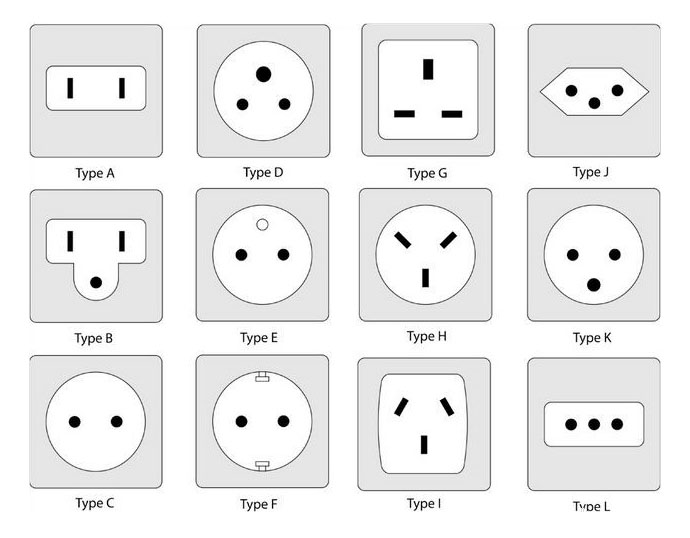
For climatic and cultural reasons, loose garments will be most appropriate: long trousers, long skirts, long-sleeved shirts, which can be easily washed and will quickly dry. The most comfortable footwear for the tour will be lightweight boots. Palladium brand boots are recommended. You may walk in open sandals but in towns and desert regions this may be uncomfortable because of stones, thorny plants and sharp grasses. Light hiking boots may prove useful. The following are worth taking:
- thin summer sleeping bag; it will improve your sleeping comfort, especially while staying in national parks
- sachet for documents and money
- wet wipes for body cleaning and antibacterial gels
- dry shampoo
- polar fleece jacket or warmer blouse, especially useful at evening and night times
- head cover and sunglasses – mandatory, the sun is no joke!
- comfortable summer clothes, useful during practically the whole trip
- light T-shirts/shirts
- useful odds and ends: torch, Swiss Army knife, sewing kit (usually is not needed but is not heavy and does not take much place), chargers, mug (for special occasions); inflatable neck pillow, useful on the plane and during car rides; small wallet for the local currency; books to pass the time on flights and car rides
Price
Price: £ 3590 p/p
Program – 12 days Malawi, Zambia
Program – 4 days Katanga Democratic Republic of the Congo supplement
Price: £ 990 p/p
During the expedition, we will travel by 4WD vehicles. The expected number of travellers in one vehicle will depend on the size of the off-road minibus + driver. Our cars may not be equipped with air conditioning or the air conditioning system may be switched off because of too much dust particles in the air. Speed depends on the road surface conditions, terrain characteristics and number and length of stops. During our trip, we will also use boats and small tourist ships while visiting national parks.
We are not able to guarantee a uniform accommodation standard at each of the planned sites during the stay in Zambia, Malawi and the Democratic Republic of the Congo. Our priorities are your comfort, appropriate location, character of the site and historical, cultural and natural values. We always place emphasis on the support of local community when selecting the sites for our accommodation. In general, rooms will be assigned on the assumption of two people sharing a twin room (rooms with individual bathrooms). The surcharges for single rooms are quoted in the “Price” section.
- Accommodation in the visited countries is planned in 3- and 4-star hotels – African standard.
- In national parks, we will stay in African lodges.
Meals are included in the tour price, as specified in the itinerary. B – breakfast, L – lunch, D – dinner. Food during the food will usually be very varied and reflect the local culinary traditions.
For information about the local costs of living see https://www.numbeo.com/cost-of-living/.
Services of a tour guide, local and special guides in national parks
All entrance fees and permits to visit national parks and reserves in the itinerary
Trip preparation, documents necessary to obtain a visa
Costs of the main flight to Lilongwe – Malawi and from Lusaka – Zambia or KInshasa – D.R Congo
Costs of flight tickets are not covered by the tour price. BTP Adventure does not directly arrange and buy tickets for international flights. However, we may suggest the best connections and airlines. For this purpose, contact us by e-mail or call us.
- Visas for the visited countries:
- The single-entry visa for the Republic of Malawi can be obtained electronically or upon arrival: https://www.evisa.gov.mw/Index
- The single-entry visa for the Republic of Zambia can be obtained electronically or upon arrival: https://eservices.zambiaimmigration.gov.zm/#/home
- The single-entry visa for the Democratic Republic of the Congo is a tourist visa obtained in the nearest embassy of the Democratic Republic of the Congo or electronically.
Insurance is not covered by the tour price. Having valid insurance is a condition for taking part in the trip. We recommend taking out insurance that will be appropriate for the planned itinerary and for your individual state of health and needs. Please send us the proof of your insurance contract.
You can purchase insurance on your own on the website of Axa or any other insurance company: https://www.axa.co.uk/travel-insurance/.
BTP Adventure may help you obtain adequate insurance cover. If you want our help, please contact us.
Meals other than those listed in the final itinerary.
The price does not includes the cost of tips and porters’ fees.
Personal expenses and souvenirs.
- Surcharge for a single room and a single tent Malawi Zambia12 days : 550 £.
- Surcharge for a single room in Guinea-Bissau 150 £.
supplementary payment for the additional accommodation In the case of arrival or departure on a different date,
We will keep updating the detailed information on the safety and final itinerary of the tour. Before you decide to submit the booking form, please learn about the current political and sanitary situation in the visited countries.
The planned expedition is an exclusive proposal prepared on the basis of our experience and knowledge of the local peculiarities and major sightseeing attractions of Zambia, Malawi and the Democratic Republic of the Congo.
We are committed to ensure the best possible and safe and, as far as feasible, comfortable travelling through these little-frequented and extremely interesting countries.
With any questions please contact BTP ADVENTURE
3590 £ Per Person Malawi Zambia
The trip can be made in its basic variant: Malawi and Zambia, 12 days, or in the extended option with a stay in the Democratic Republic of Congo – the Katanga Province.
Depending on the political situation, the length of the tour and the order of visited places may change. In a situation of a serious threat to travellers’ safety, the itinerary may be modified. We will keep you updated as to whether the expedition is possible.
The trip can be modified as suggested by the interested participants.

